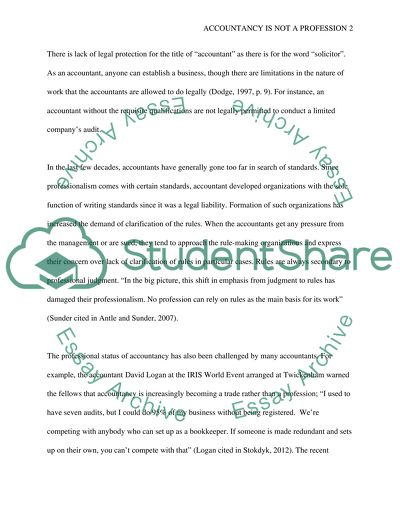Cite this document
(“Accountancy is not a profession Essay Example | Topics and Well Written Essays - 1000 words - 1”, n.d.)
Accountancy is not a profession Essay Example | Topics and Well Written Essays - 1000 words - 1. Retrieved from https://studentshare.org/finance-accounting/1468104-accountancy-is-not-a-profession
Accountancy is not a profession Essay Example | Topics and Well Written Essays - 1000 words - 1. Retrieved from https://studentshare.org/finance-accounting/1468104-accountancy-is-not-a-profession
(Accountancy Is Not a Profession Essay Example | Topics and Well Written Essays - 1000 Words - 1)
Accountancy Is Not a Profession Essay Example | Topics and Well Written Essays - 1000 Words - 1. https://studentshare.org/finance-accounting/1468104-accountancy-is-not-a-profession.
Accountancy Is Not a Profession Essay Example | Topics and Well Written Essays - 1000 Words - 1. https://studentshare.org/finance-accounting/1468104-accountancy-is-not-a-profession.
“Accountancy Is Not a Profession Essay Example | Topics and Well Written Essays - 1000 Words - 1”, n.d. https://studentshare.org/finance-accounting/1468104-accountancy-is-not-a-profession.


